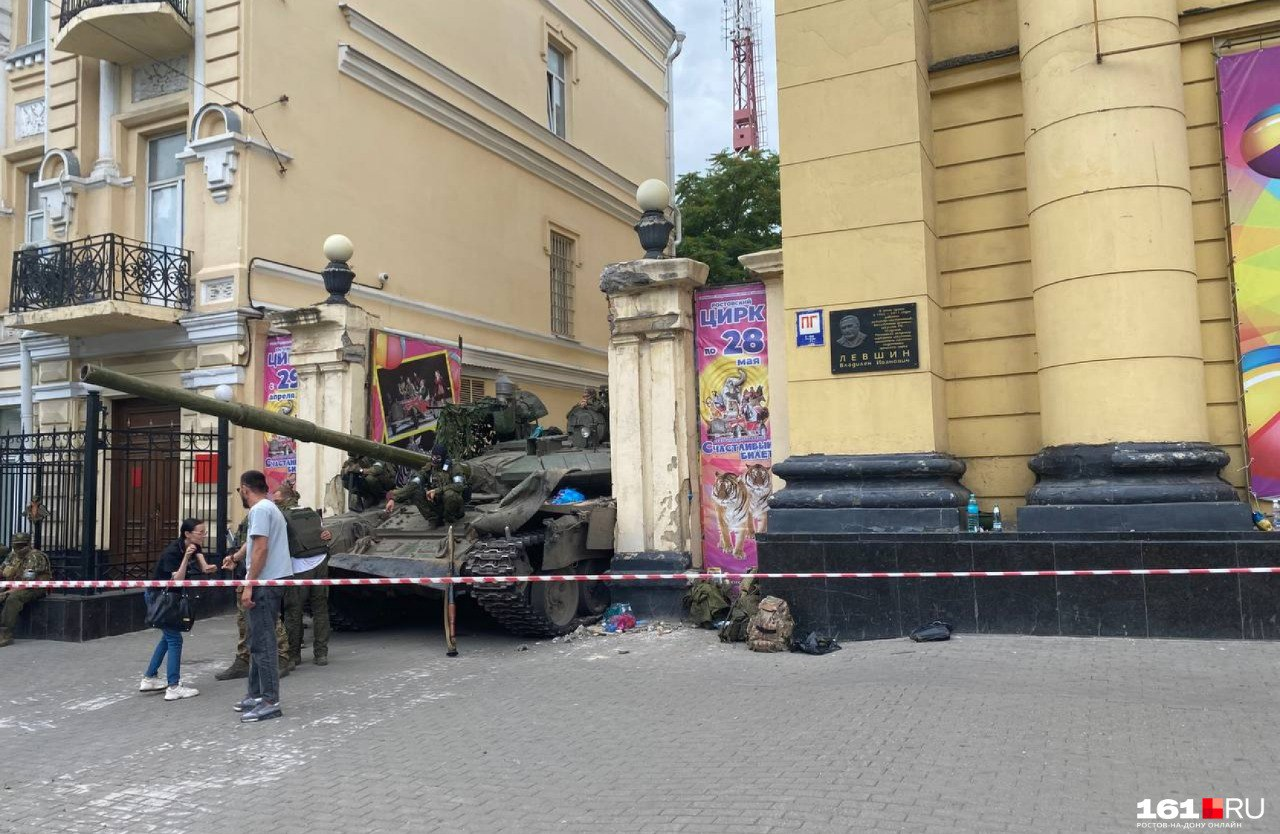Russia’s Special Military Operation Takes an Interesting Turn
 The situation got worse
The situation got worse

The special military operation of the Russian Federation in Ukraine has conveniently reached its “planned” capacity and managed to extend its influence into several regions of Russia itself. While tactical nuclear warheads are being transported to Belarus, Kadyrov is heading to Rostov to assist Putin, and trenches are being excavated in the vicinity of Moscow. The so-called Union State seems to be entering a turbulent period.
Three years ago, the general public in Belarus first learned about the existence of Wagner PMC – in the context of the events of the 2020 presidential campaign. Since then, dozens of new private military campaigns have been created in Russia, which many experts thought were “under the control of the Kremlin.” However, the assertive actions taken by Putin and Lukashenko over the past three years have failed to address any social or political issues and have, instead, unleashed the Nazguls, who were mistakenly perceived as “tame.”
Currently, there are at least five major Russian PMCs involved in the conflict against Ukraine: apart from “Wagner,” there are “Enot,” “Patriot,” “Shtorm,” and “Redut.” Additionally, there is the private security organization of GazpromNeft, the PMC of billionaire Andrey Bokarev, and many others.
The latest cause for another conflict between Y. Prigozhin and S. Shoigu arose from the decree issued by the Russian Minister of Defense, which mandated that all “volunteer detachments” must sign a contract with the Ministry of Defense before July 1. According to the Russian Ministry of Defence, as of June 22, over 20 volunteer units engaged in the operation in Ukraine have complied and signed these contracts. Naturally, the PMC “Wagner” was not among the entities listed.
The “Prigozhin rebellion” is anticipated to be the initial catalyst in a series of events that could potentially lead to a civil proxy war. This clash would involve the prominent pro-state entities and private criminal groups (OPGs), competing for power and control over resources during a period of power and property redistribution.
Headlines regarding Yevgeny Prigozhin’s statements about a possible coup in Russia swiftly impacted the stock prices of major Russian companies. Overall, the market value of several Russian corporations experienced a decline ranging from 1% to nearly 6%.
In his urgent televised address to the Russian people on June 24, Vladimir Putin declared that Russia was in a battle for its survival and acknowledged that there was an attempt of rebellion within the country. He discussed the possibility of a civil war and drew parallels with the events of 1917. Additionally, he personally contacted at least three leaders from CSTO countries—Belarus, Kazakhstan, and Uzbekistan—to provide them with updates on the ongoing developments.
President of Kazakhstan, Kassym-Jomart Tokayev, referred to the events taking place in Russia as an internal matter of the country. In doing so, he essentially echoed the sentiment shared by the political elites of CSTO and CIS nations: if things don’t go as planned for Russia, it’s their own responsibility to find a way out.
Up until now, Aliaksandr Lukashenka has refrained from making any significant public statements, leaving the task of issuing vague statements to the Security Council of the Republic of Belarus. He has, however, conducted two meetings with the security forces and military personnel. Rumors have circulated suggesting that Lukashenka engaged in discussions with Yevgeny Prigozhin, supposedly with the approval of Vladimir Putin. According to a representative from the Kremlin, the negotiations resulted in an agreement to drop the criminal charges against Prigozhin and allow him to relocate to Belarus.
On June 23, a representative from the Russian Foreign Ministry stated that Russia had no intention of disclosing information regarding the quantity of nuclear warheads supplied to Belarus. However, the representative emphasized that Russia remained committed to preserving the Treaty on the Reduction of Strategic Offensive Arms and expressed a desire to avoid its termination.
Subscribe to our newsletter




Situation in Belarus
Constitutional referendum: main consequences


 Video
Video
How to count the political prisoners: are the new criteria needed?


 Video
Video
Paternalism In Decline, Belarusian Euroscepticism, And The Influence Of Russia


 Video
Video












